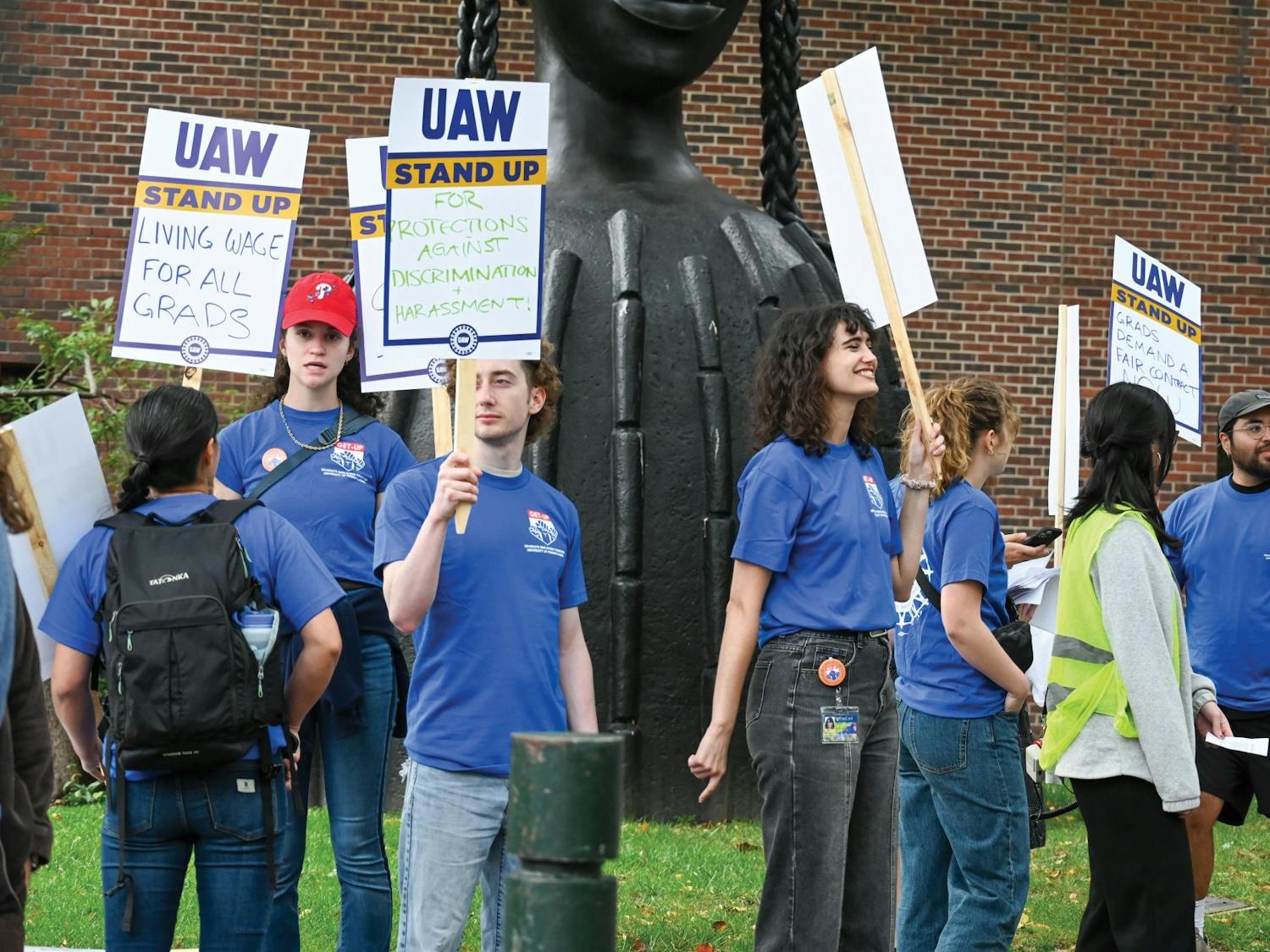With American planes flying low over Afghanistan and new reports arriving every day of special forces infiltrating the country's interior, students in Penn's Reserve Officer Training Corps are facing a global picture different than the one they saw when they first enlisted.
Nonetheless, ROTC students see the responsibility they've shouldered as a source of pride.
For several, the news of casualties in Afghanistan has only strengthened their resolve.
Two U.S. Army Rangers were killed in a helicopter accident in Pakistan on Oct. 19, reportedly due to poor visibility.
"We know that people are going to go abroad and not come home," said Marine Corps ROTC student Kate Florenz, a College junior. "It's part of the sacrifice that people have been making for years and years to make this country what it is. A lot of people are going to be making more money than I am when they graduate, but no one will have more honor."
"I definitely feel proud of what I'm doing," said Army ROTC student Geoffrey Pelletier, an Engineering senior. "It's something only a very small number of Penn graduates do. I'm definitely taking a pay cut and could possibly give my life. I'm proud of that."
But Air Force ROTC student Alex Rimoldi, an Engineering senior, said that there is actually only a small chance that any ROTC student will be involved in a combat situation. He said that students will more likely participate in non-combat positions.
"A lot of people work in support roles," he said. "There are over two million serving... and there might be a couple hundred troops in Afghanistan."
According to Political Science Professor Avery Goldstein, at present it doesn't appear that the United States is sending many ground troops to Afghanistan, and is instead utilizing highly trained Special Forces troops.
And Political Science Professor Robert Vitalis said that the war on terrorism does not resemble any other recent conflicts.
"This is not the Iraq war," he said. "The only similarity is the strategic bombing."
Additionally, Rimoldi attributed the fears of the average citizen to a misunderstanding of the way the military functions.
It is these types of misunderstandings that represent the difference in the mindsets of civilians and soldiers, he said.
"There are always those feelings of fear or anxiety, but we know what we're capable of," Rimoldi said.
"The fear comes from more of a lack of understanding... just not understanding what really goes on on a daily basis," he added. "We have the same fears, but a better understanding of how things operate."
Whatever the future holds, ROTC students are faced with far different prospects than the average civilian. It is a future, however, with which they say their training has prepared them to deal.
"You don't necessarily look forward to going to a war situation, but I wouldn't say anyone is afraid of it," Pelletier said. "I feel that at some point I'll have to go and I look forward to serving the country."
College senior Piers Platt, also part of Army ROTC, said he and the other cadets are ready to fight a war if called upon.
"It's a very different situation for us now and I think everyone is ready to willing to do the job we've been trained for," he said.
"On the one hand it's a little exciting, but it's a lot scarier too," he later added. "Personally, I would prefer not to have to serve in a war... but I will if I'm called upon to do so."
During the year, ROTC students have physical training two or three times a week, a weekly lab period where students participate in a variety of activities, ranging from listening to guest speakers to more training.
Despite the events of Sept. 11, however, the training programs have remained unchanged.
After graduation, ROTC students go through several months of basic training before going to a school for specialized training based on their chosen career path. They are then assigned to four years of active duty followed by another four years of service with the reserves.
"When they get their commission, depending on their career path... they go on to their follow-on school," Chief of Naval Education and Training spokeswoman Michele Harrison said. They have follow-on training that they have to go into before they go into the operation side of things. That hasn't changed."








